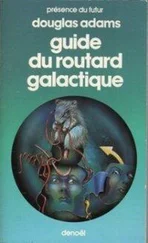Douglas Adams - The Salmon of Doubt
Здесь есть возможность читать онлайн «Douglas Adams - The Salmon of Doubt» весь текст электронной книги совершенно бесплатно (целиком полную версию без сокращений). В некоторых случаях можно слушать аудио, скачать через торрент в формате fb2 и присутствует краткое содержание. Жанр: Фантастика и фэнтези, на английском языке. Описание произведения, (предисловие) а так же отзывы посетителей доступны на портале библиотеки ЛибКат.
- Название:The Salmon of Doubt
- Автор:
- Жанр:
- Год:неизвестен
- ISBN:нет данных
- Рейтинг книги:4 / 5. Голосов: 1
-
Избранное:Добавить в избранное
- Отзывы:
-
Ваша оценка:
- 80
- 1
- 2
- 3
- 4
- 5
The Salmon of Doubt: краткое содержание, описание и аннотация
Предлагаем к чтению аннотацию, описание, краткое содержание или предисловие (зависит от того, что написал сам автор книги «The Salmon of Doubt»). Если вы не нашли необходимую информацию о книге — напишите в комментариях, мы постараемся отыскать её.
The Salmon of Doubt — читать онлайн бесплатно полную книгу (весь текст) целиком
Ниже представлен текст книги, разбитый по страницам. Система сохранения места последней прочитанной страницы, позволяет с удобством читать онлайн бесплатно книгу «The Salmon of Doubt», без необходимости каждый раз заново искать на чём Вы остановились. Поставьте закладку, и сможете в любой момент перейти на страницу, на которой закончили чтение.
Интервал:
Закладка:
“I’ve always found that a rhinoceros makes a pretty poor kind of party guest,” said Dirk. “Try it if you must, but brace yourself.” It was Dirk’s view that asking direct questions made people wary. It was more effective to talk complete nonsense and let people correct him.
“What do you mean, ‘party’?” said the driver.
“The party the other rhinoceros was attending,” said Dirk, tapping the side of his nose, “when it died.”
“Attending?” said the driver with a frown. “I wouldn’t say that it was actually attending the party.”
Dirk raised an encouraging eyebrow.
“It charged down out of the hills, smashed through the perimeter fence, crashed through the plate-glass windows into the house, took a couple of turns around the main room injuring about seventeen people, hurtled back out into the garden where somebody shot it, whereupon it toppled slowly into a swimming pool full of mostly naked screenwriters, taking half a hundredweight of avocado dip and some kind of Polynesian fruit melange with it.”
Dirk took a moment or two to digest this information. Then, “Whose house was this?” he said.
“Just some movie people. Apparently they’d had Bruce Willis round only the previous week. Now this.”
“Seems a bit rough on the old rhino as well,” said Dirk. “And now here’s another one.”
Excerpts from an Interview with the Daily Nexus, April 5, 2000 How does Douglas Adams arrive for coffee? If he were like the Montecitans stopping by Pierre Lafond’s, he would show up in an SUV, a luxury car, or a luxury SUV. The basic cup of coffee at Pierre Lafond’s costs $1.25 and is called
“organic French roast.” It tastes exactly like McDonald’s coffee or organic crankcase fluid, not that the drivers of SUVs seem to care. I expected more from Adams than an SUV: I wanted to see him skip out of a spaceship, materialize, or even just walk. This is a guy who wrote The Hitchhiker’s Guide to the Galaxy and has managed to make life, the universe and everything much more entertaining. So, I wondered, how would he arrive? Black Mercedes.
Adams is six feet five inches tall, with intensely round eyes. He hadn’t had a good day. His daughter was sick, and the croissant he was eating at 5:00 P.M. was lunch. Life hasn’t been bad for the forty-nine-year-old Adams, though. He travels the world, his nine books have sold over 15 million copies, and the oft-delayed Hitchhiker’s movie is now being produced by Disney and has the director of Austin Powers signed on.
“The perennial movie, which has been about to be made for about twenty years and is even more about to be made now,” Adams said. “But we shall see. I wish I had never thought of doing it as a movie. I’d have about ten years of my life back. For the first time in over a decade, Adams is working on a book.
“There was a point where I just got massively fed up with it. My books tend to use up ideas at a ferocious rate,” he said. “I never intended to be a novelist to begin with. So I decided to go and do a whole bunch of other things... . The consequence of that is I have a huge backlog of story ideas, and now the sort of panic is, ‘Can I do them all in the rest of my career, given the speed at which they’re arriving at the moment?’ The other panic, of course, is the perennial writer’s problem of application. I think I have more fear of writing than most writers.”
“Since then, I’ve now got lots and lots of different story lines waiting for me to turn them into books.
One of them I shall apply the title Salmon of Doubt to, but I don’t know which one yet.”
In 1990, Adams, with zoologist Mark Carwardine, wrote Last Chance to See. It’s one of his hardest books to find, and his favorite. When Adams—who has lived in Santa Barbara for the last two years—speaks today at UCSB, it’s the book he’ll talk about.
“I do talks around most of the rest of the country,” Adams said. “So I was very keen to do one here, just to sort of say, ‘Hi, here I am.’ ” Adams gives a lot of speeches, usually about high technology to large companies. “I actually much prefer doing this particular one, which I only ever usually get to do at colleges because it’s funny, but big corporations don’t particularly like to hear about protecting endangered wildlife,” he said. “You lose a lot of money to endangered wildlife.”
Last Chance to See started as a magazine article for the World Wildlife Fund. The group sent Adams to Madagascar, where he met Carwardine. Adams wrote about the aye-aye, an endangered species of nocturnal lemur that looks like a cross between a bat, a monkey, and a very surprised infant.
“At the time, it was thought that there were only about fifteen. They’ve found a few more so it’s not quite so endangered, just very, very, very endangered,” Adams said. “The whole thing was completely magical.” So magical that Adams and Carwardine spent the next year traveling the world and seeing endangered animals, like flightless kakapo parrots in New Zealand and baiji river dolphins in China. The last twenty dolphins will become extinct when the Chinese government completes the Three Gorges Dam and destroys the dolphins’ habitat.
“It’s a desperate thing, not only because another species is lost and the tragedy of that, but because I don’t know why we keep building these fucking dams,” Adams said in a surprisingly forceful British whisper. “Not only do they cause environmental and social disasters, they, with very few exceptions, all fail to do what they were supposed to do in the first place. Look at the Amazon, where they’ve all silted up. What is the reaction to that? They’re going to build another eighty of them. It’s just balmy. We must have beaver genes or something... . There’s just this kind of sensational desire to build dams, and maybe that should be looked at and excised from human nature. Maybe the Human Genome Project can locate the beaver/dam-building gene and cut that out.” In The Hitchhiker’s Guide to the Galaxy, intergalactic bulldozers destroyed the Earth and humanity. A very different sort of bulldozer destroyed the most successful species the planet had ever known. Sixty-five million years ago, a six-mile-wide asteroid slammed into the Yucatan peninsula, created a one-hundred-mile crater, and sent a cloud of searing vapor and dust into the air. That was pretty much it for the dinosaurs.
“I’m rather obsessed with the idea of that comet coming down and it being the single event to which we owe our very existence,” Adams said. “It is arguably the single most dramatic thing to have ever occurred in the world and certainly the one that was the most dramatic event in our lives, in that it paved the way for our existence, and no one was there to see it.”
Dinosaur-killing rocks are classic physics. The newer physics is a little too outlandish for Adams, a man who wrote that the answer to Life, the Universe and Everything is 42. A computer came up with that answer, and Adams said computers will change everything.
“Now that we’ve built computers, first we made them room-size, then desk-size and in briefcases and in pockets, soon they’ll be as plentiful as dust—you can sprinkle computers all over the place. Gradually, the whole environment will become something far more responsive and smart, and we’ll be living in a way that’s very hard for people living on the planet just now to understand,” Adams said. “I guess my six-year-old daughter will get a much better handle on it.” Adams has done a bit of everything, from radio to television to designing computer games. Not all of them worked out.
“At the end of all this being-determined-to-be-a-jack-of-all-trades, I think I’m better off just sitting down and putting a hundred thousand words in a cunning order.”
Читать дальшеИнтервал:
Закладка:
Похожие книги на «The Salmon of Doubt»
Представляем Вашему вниманию похожие книги на «The Salmon of Doubt» списком для выбора. Мы отобрали схожую по названию и смыслу литературу в надежде предоставить читателям больше вариантов отыскать новые, интересные, ещё непрочитанные произведения.
Обсуждение, отзывы о книге «The Salmon of Doubt» и просто собственные мнения читателей. Оставьте ваши комментарии, напишите, что Вы думаете о произведении, его смысле или главных героях. Укажите что конкретно понравилось, а что нет, и почему Вы так считаете.







